MercoPress. South Atlantic News Agency
Economy
-
Saturday, December 11th 2021 - 09:20 UTC
Brazil 12 month inflation in November at an eighteen year record of 10,74%
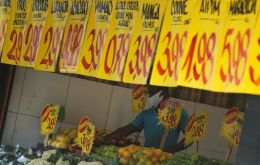
Brazil's November inflation reached the highest in eighteen years, 10,74%, almost three times this year's central bank target (3,75%), but the rising trend seems to be flattening, according to the national stats office.
-
Friday, December 10th 2021 - 09:56 UTC
Brazil raised the benchmark interest rate to 9,25% to try and contain inflation

Brazil's Central Bank raised its benchmark interest rate 150 basis points for the second time running to 9,25%, the highest since 2017, in an effort to contain growing inflation.
-
Friday, December 10th 2021 - 09:34 UTC
Latin America's exports this year to increase 8% in volume and 17% in value, ECLAC report
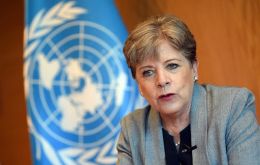
The United Nations Economic Commission for Latin America and the Caribbean estimates a 25% increase in the value of regional goods exports during 2021, following a 10% drop in 2020, driven by a 17% rise in export prices and an 8% expansion in the volume of shipments.
-
Friday, December 10th 2021 - 09:04 UTC
Paraguay decrees tax cut to boost sales to foreign residents in bordering cities

Paraguayan authorities have decided to cut down the Value Added Tax (VAT) by 1% until March 2022 in a move to boost across-the-border trade. The measure applies to goods imported through the so-called Tourism Regime and includes beverages and perfumes.
-
Friday, December 10th 2021 - 08:58 UTC
Living conditions of Brazilians has deteriorated under Bolsonaro, study says

A survey released this week has shown that the overall living conditions of Brazilians under President Jair Bolsonaro has taken a turn for the worse, which would account for the drop in his approval ratings, which do not make him the favorite to win next year's elections.
-
Thursday, December 9th 2021 - 09:57 UTC
No face-to-face Mercosur Summit, Bolsonaro decides
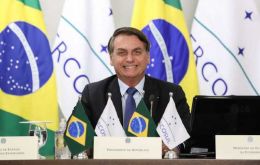
Brazilian President Jair Bolsonaro Wednesday decided that the upcoming Mercosur Summit, scheduled for Dec. 16 and 17, which was to be the first in a long while under the old face-to-face format, has been reshaped to be held virtually like most recent ones.
-
Wednesday, December 8th 2021 - 22:26 UTC
Argentina shows marginal decrease in people below poverty lines
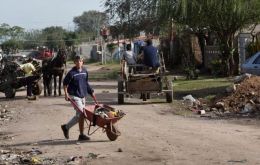
Argentina's Catholic University (UCA) has released a study showing there were over 18.4 million poor people in the country, which would account for 43.8% of the population.
-
Wednesday, December 8th 2021 - 09:44 UTC
Chile's inflation: the highest since December 2008; Central Bank expected to further raise basic rate
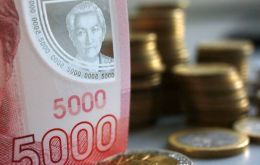
Chile's Consumer Price Index, CPI, in November climbed 0,5%, in line with market expectations, according to a report from the Stats Office, INE, In the eleven months of the year the IPC reached 6,3% and 6,7% in the last twelve months, which is the highest since December 2008 (7,1%), and far above the Central Bank's target of 3%.
-
Wednesday, December 8th 2021 - 09:12 UTC
Inflation once again brings on increase in poverty throghout Paraguay

Analysts foresee official data for the year 2021 will show an increase in poverty for the second straight year in Paraguay and will reach almost 30% due mainly to increasing inflation, analysts said Tuesday.
-
Tuesday, December 7th 2021 - 15:21 UTC
With mind set in self sufficiency, China announces new record grain production in 2021

In 2021, China's total grain production reached 1.37 trillion jin (685 billion kg), hitting a new record high, data from the National Bureau of Statistics (NBS) showed on Monday. A Jin is equivalent to 500 grams or half a kilo.
